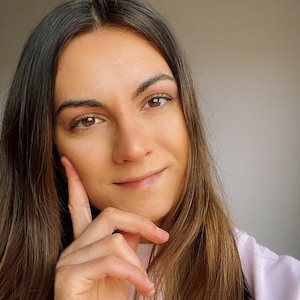One of the most frequent questions I’m asked as an author, is ‘Why did you write about this?’ and it’s closely followed by, ‘Where do you get your ideas from?’ The latter is a weird one to answer because, unlike writer friends and clients who are always itching to start new things, I rarely have new, shiny and sparkling ideas.
If I were to use a nature analogy, I’d say mine start out as dullish caterpillars that wriggle around, form a chrysalis and just hang for a while, then eventually emerge as butterflies, their colours and patterns continuing to develop. I suppose I’m a slow burner. And whilst I’m usually in the ‘plotter’ camp, I do find that in the very act of writing the story evolves.
Why I write about something – fiction or non-fiction – is simple: because I’m interested in it and I'd like to share that. My first full-length book, A Blonde Bengali Wife, was to share an image of Bangladesh that very few foreigners ever got to see – and I’d fallen in love with the country and never shut up talking about it, so a book provided a whole new audience! Whereas The Almost Truth, my debut novel published in April has its story-roots in the lives of two good friends, and its locations – Dublin, Edinburgh, Bhola – are three of my favourite places. My next novel (probably re-titled Letters from Elena) is all about identity, diversity, and the historical island of Cyprus.

It's true to say that most interviews concentrate on these universal questions, the ones that are easily communicated in a few recorded minutes or half a dozen lines on a page. Occasionally, there’s the opportunity for a more in-depth discussion – something that feels very decadent and self-indulgent! Especially when the interviewer has carefully chosen the questions themselves, and is genuinely interested in the answers.
A little while ago, I spoke to Carolina Cioara, about all things The Almost Truth – and her questions really got me thinking. We certainly did talk about identity: physical roots, what it means to belong, and what happens when people change – if they ever really do? Can promises made decades ago still be held to account?
But Carolina also wasn’t afraid to address the issue of a transgender character and another being mixed race – often contentious topics, especially on social media – so often the elephants in the room. Carolina deftly picked out the quote when Alina says, ‘I suppose people…I suppose we, are just trying to get it right,’ and Sanna’s response is, ‘They could just ask.’
On a roll, we talked about faith or belief, and its role in difficult times; the fact that we all need something or someone to believe in, whether that’s ourselves, our families, a deity or whatever…
And of course, we ended on writing: doing it, talking about it, thinking about it. I’m going to shamelessly quote Carolina on The Almost Truth. She very kindly says,
‘You masterfully build tension by changing up the timelines of the story, almost as if you are trickling half-truths and we eventually find out the whole truth. This is an amazing skill that keeps us readers turning the page’.
And hoping that readers will keep turning the page is surely why writers write.
You can listen to the full interview here: Identity & Transgenderism in The Almost Truth by Anne Hamilton | Carolina Cioara

And also check out Carolina’s other work. She’s a writer herself, especially of children’s and YA fantasy, whose background is as an English teacher and librarian. She’s narrated three audiobooks, available on Audible, and she has an emerging and very promising career as a podcaster and interviewer on social media. Her profile is at Carolina Cioara - Writing.ie
Thank you, Carolina!
Anne x

